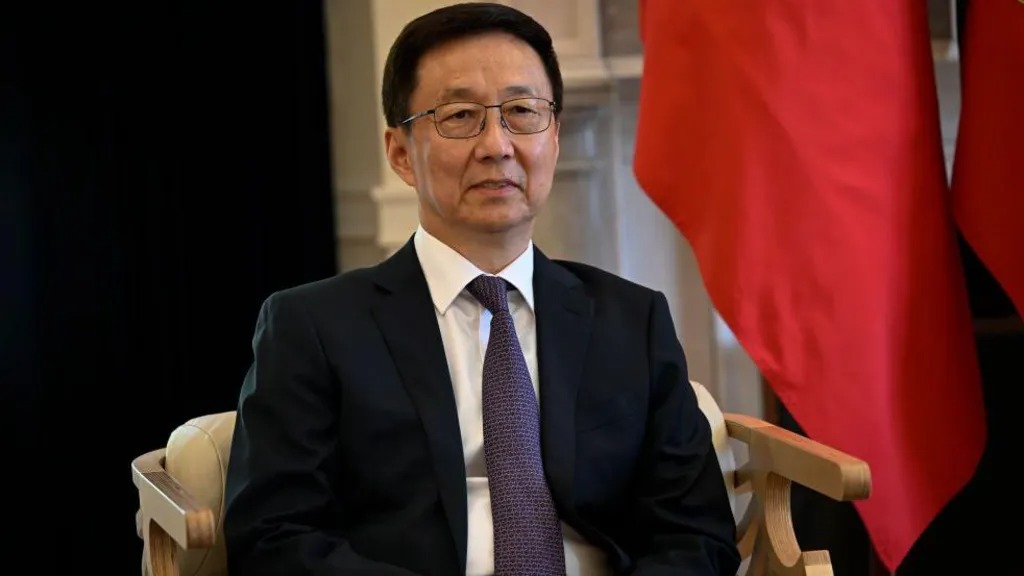
Who is China Sending to Trump’s Inauguration?
China has announced that Vice-President Han Zheng will attend President-elect Donald Trump’s inauguration on January 20, marking the first time a senior Chinese leader will witness a US president’s swearing-in ceremony.
This move by Beijing is seen as an effort to foster dialogue with the incoming administration while preparing for the challenges posed by Trump’s expected hardline policies toward China.
Why is Han Zheng Attending?
Traditionally, Chinese presidents do not attend foreign inaugurations or coronations, opting instead to send representatives. For past US presidential inaugurations, China was represented by its ambassador to the United States.
Han Zheng’s attendance signals a more significant gesture from China. Analysts believe the decision reflects Chinese President Xi Jinping’s cautious strategy of maintaining diplomatic courtesies while keeping some distance from the potentially tumultuous Trump presidency.
According to Neil Thomas of the Asia Society Policy Institute, Xi’s decision to send Han shows that while Beijing wants to foster deal-making opportunities, it does not want to appear as a “supporting actor in the Trump show.”
Who Is Han Zheng?
A Senior Political Figure
Han Zheng, 70, holds the vice-presidency, making him the most senior leader after the seven men in China’s Politburo Standing Committee (PSC). Han was himself a PSC member until October 2022, before Xi Jinping reshuffled key leadership roles.
A Trusted Diplomat with Global Experience
Han’s career is steeped in both domestic and international roles:
- Belt and Road Initiative: He played a key role in promoting China’s flagship trade and infrastructure project.
- Winter Olympics 2022: Han led the steering committee for the Beijing Games.
Although he is not part of Xi’s inner circle, Han is a trusted figure. This gives Beijing the flexibility to distance itself from any diplomatic missteps, should US-China relations sour.
Trump’s Invitation to Xi Jinping
In a break from tradition, Trump had invited Chinese President Xi Jinping to attend the inauguration, along with other global leaders such as Argentinian President Javier Milei and Italian Prime Minister Giorgia Meloni.
While Xi declined the invitation, sending Han demonstrates China’s willingness to engage with the Trump administration while avoiding overexposure.
“Xi trusts Han enough to undertake this mission but Han is not a key ally and could be safely blamed if it goes embarrassingly wrong,” notes Thomas.
What Does This Mean for US-China Relations?
Han’s attendance is symbolic of China’s efforts to navigate the uncertainties of a Trump presidency:
- Potential for Collaboration: Beijing has expressed interest in working with the US to find “the right way to get along in the new era.”
- Preparedness for Challenges: Trump’s proposed tariffs and adversarial rhetoric signal a tougher stance on trade and diplomacy.
Beijing’s strategy may also include keeping a diplomatic buffer. “If relations worsen, Xi and the Communist Party can point to Han’s attendance as a token effort without overcommitting,” says Prof Chong Ja-Ian of Carnegie China.
The Bigger Picture: A Diplomatic Balancing Act
China’s choice to send Han Zheng, who is not currently on the PSC, reflects its calculated approach to Trump’s inauguration. The move:
- Demonstrates respectful engagement with the incoming US administration.
- Allows Beijing to maintain distance in case of future disagreements.
- Provides a low-risk option, as Han can be held accountable for any negative outcomes without implicating Xi directly.
This calculated diplomacy underscores China’s broader strategy to balance engagement with caution in the face of Trump’s anticipated policies, which include tariffs and more aggressive trade negotiations.
Conclusion: A Historic Moment
Han Zheng’s attendance at Trump’s inauguration marks a historic first for US-China relations and signals Beijing’s careful navigation of a potentially volatile political environment.
While Han’s presence suggests a willingness to engage, both nations face challenges as Trump’s presidency is expected to usher in a new chapter of economic and geopolitical tensions.
External Link: BBC
Internal Link: Kenkou Land





